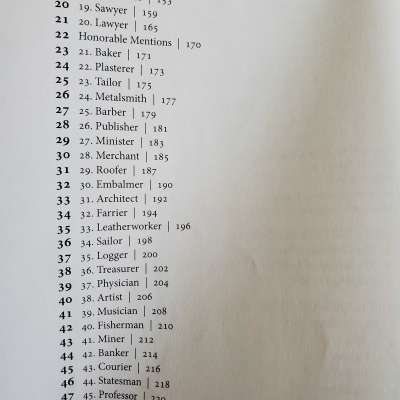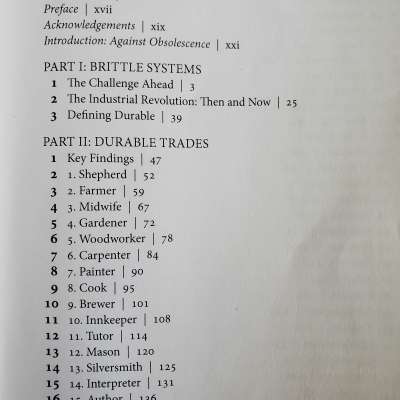Watch
Events
Articles
Market
More
There's a lot of pride and ego found in the Torah community. I've witnessed it shown by many over the years. Sometimes we don't even realize our own pride and stiff necked ways. When we belittle or look down on someone elses perspective or accuse them of not having "The Truth", that is pride coming through, because you are saying that your perspective is the truth. What is truth? Is it yours, or is it Yah's truth? When you point at a brother or sister in the faith and tell them that they are in sin for believing something, you need to beware. It is easier to blaspheme the Holy Spirit (Ruach HaChadosh) than you may realize. It's as easy as saying something of the spirit is of Satan or vice versa.
Let's all remember to be more like Yahushua, humble and meek.




As you read the Gospels of Matthew and John--and all the words of Yeshua--keep in mind that every story--and nearly every statement--is an allusion to something in the Torah, Writings, and Prophets of the Old Testament.
#biblestudy #biblepatterns #jesus #yeshua



This morning, while chatting with some men, Durable Trades came up. I pulled the book off of the shelf to check something in the Table of Contents and began considering Maslow's hierarchy and the list of trades. My takeaway is that the smaller the clan or community, the higher on the list one wants to be re: skillset and trades. Also, I was reminded how important it is to be diversified, both personally and corporately. See images below to see what I mean. The top ten are MUST HAVES while (not pictured) the bottom section are only useful in a larger organized society.
Advice? Aim for diversity both personally and corporately in the top twenty...
Oh.. I just noticed where 'Honorable Mentions start... ?





COVENANTS – PART 3
YHVH’s Covenant With David:
When David became king of Israel, YHVH modified His Covenant with the people of Israel again and said that the descendants of David would always be king -- 2 Samuel 23:5. David’s descendants did rule Israel until Babylon conquered them. At that point, many of the Israelites were not sure how YHVH could keep His Promise to David. After all, how could a nation of exiles and slaves give birth to a king? Eventually, however, YHVH kept His Promise with the birth of Yeshua, who was a descendent of David, and who was to be King for all eternity.
The New Covenant:
The words New Covenant are mostly found in the New Testament and they refer to the redemptive work of Yeshua Moshiach in His death and resurrection. While the Old Testament Covenant only included the Israelites, the New Covenant extended YHVH’s Grace to all people.
The Prediction of the New Covenant:
Even though the Old Testament Covenant was a wonderful gift from YHVH, it was still dependent on the Israelites’ obedience to YHVH. Each time the Israelites disobeyed YHVH, they had to offer burnt sacrifices in order to restore their relationship with YHVH. Many of YHVH’s prophets knew that the Israelites, because of their sin, would never be obedient enough to earn the Grace of YHVH. Because of this, YHVH gave these prophets the message of a New Covenant that would offer His Grace unconditionally to all people. The story of the prophet Hosea is a wonderful parable of the New Covenant YHVH was planning for Israel. YHVH Commanded Hosea to marry a woman named Gomer. Soon after they were married, Gomer was unfaithful to Hosea. Their marriage covenant was broken, and they divorced. Eventually, YHVH Commanded Hosea to return to Gomer and their marriage was restored. In the same way, YHVH’s relationship with Israel, which had been broken because of the Israelites’ disobedience, would eventually be restored and blessed by the New Covenant. The prophet Jeremiah also spoke of YHVH’s New Covenant. Jeremiah was a witness to one of the worst periods of Israel’s history. During his life, Israel was conquered by Babylon and forced into slavery. Israel no longer owned the land YHVH had granted to them with the Covenant at Sinai, and YHVH’s blessing on them seemed a thing of the distant past. In the midst of all this, YHVH sent Jeremiah the message of the New Covenant. [The days are coming, says Adonai, when I will make a New Covenant with the house of Israel and the people of Judah -- Jeremiah 31:34. Despite Israel’s constant disobedience to YHVH, He was promising a New Covenant that would provide complete forgiveness for all sins. When the New Covenant arrived, YHVH would offer all people eternal protection and comfort.
The Fulfilment of the New Covenant:
When Yeshua Moshiach came to earth, He came to implement YHVH’s New Covenant. His death and resurrection brought radical changes to the Covenant in the Old Testament. The Old Covenant was written on stone tablets; the New Covenant was written in peoples’ hearts. The Old Covenant required animal sacrifices; under the New Covenant, Yeshua’ death provided the perfect sacrifice for all sins all the time. YHVH offered the Old Covenant only to the Israelites; the New Covenant made YHVH’s Grace available to everyone. Under the New Covenant, all people are able to have an intimate relationship with YHVH through Yeshua Moshiach. The book of Hebrews talks extensively about YHVH’s New Covenant. The writer of Hebrews attempts to explain why the New Covenant involving Yeshua Moshiach is better than the Old Testament covenant YHVH set up at Mount Sinai. The writer gives numerous reasons why the new covenant is far superior.
1 -- The New Covenant needs only one priest, Yeshua Moshiach, who is the eternal Mediator between YHVH and man.
2 -- Because Yeshua’ death was the perfect sacrifice, there is no need for the repeated animal sacrifices YHVH required of the Israelites. Yeshua’ death and resurrection provide an eternal and perpetual sacrifice for all people’s sins.
3 -- The New Covenant provides all people with a direct and intimate relationship with YHVH. Through this relationship, YHVH can purify our hearts and minds.
4. The New Covenant Promises the guiding Power and Comfort of Ruach HaKodesh for all people who believe.
Yeshua Moshiach is the fulfilment of all of YHVH’s Covenants throughout history. Because of Yeshua’ work on earth, all people are invited to be a participant in YHVH’s Community of believers. Each person has the opportunity to either accept or reject this Covenant with YHVH. We cannot change it. If we decide to reject YHVH and live for ourselves, He will not keep His Promise to care for us. But if we believe in YHVH’s Promises and are faithful to Him, YHVH tells us He will forgive our disobedience and no longer remember our sins -- Jeremiah 31:34.



COVENANTS – PART 2
Covenants With Ourselves:
A New Year’s resolution is a type of covenant people make with themselves. When people sin, they often promise themselves that they will not do it again. In the Old Testament, Job made a covenant with himself to act more godly -- Job 31:1. Promises like this are covenants with ourselves.
Political Covenants:
Covenants can also be made between a ruler and his people or between two nations. When David was king of Israel, he made a covenant with the Israelites -- 2 Samuel 5:3. The people promised to submit themselves to David’s authority. David promised to rule the nation justly and according to YHVH’s Law. Old Testament Covenants between nations were similar to modern treaties or alliances. King Solomon entered into a covenant with Hiram, King of Tyre. That covenant was a trade agreement between the two nations -- 1 Kings 5:12.
Covenants With YHVH:
When people participate in a covenant with YHVH, it is not much different from the covenants people make with each other. A promise is made and people have obligations to fulfil. Because YHVH is involved, these covenants are more serious and significant than the covenants between people. The blessings from YHVH are greater, and the consequences for not keeping the covenant are much harsher.
Old Testament Covenants:
The Old Testament tells the story of YHVH’s involvement in the history of the Israelites. At many crucial points in history, YHVH made Covenants with a select number of people to direct and bless them as they tried to follow Him. YHVH’s Covenants with His people changed as their relationship with YHVH changed. Even though different people were involved with the Covenants as time went by, the central idea behind YHVH’s Covenant remained the same throughout Israel’s history. YHVH wanted to establish a deep relationship with His people so they could live in a way that glorified Him.
YHVH’s Covenant With Adam and Eve:
The very first Covenant YHVH made was with Adam and Eve in the Garden of Eden. YHVH created them and gave them a wonderful place to live. In return for this gift, Adam and Eve were to take care of the garden and not eat the fruit from one particular tree -- Genesis 3:3. When Adam and Eve disobeyed YHVH and ate the forbidden fruit, the covenant was broken, and YHVH no longer allowed them to live in Eden. Adam and Eve’s disobedience to YHVH had enormous consequences. People were separated from YHVH by sin, and they weren’t able to re-establish that relationship on their own. Every Covenant made between YHVH and people that followed had to be initiated by YHVH as a result of YHVH’s Grace.
YHVH’s Covenant With Noah:
Even though most people were very disobedient to YHVH after Adam and Eve’s first sin, YHVH was still merciful, and He wanted to re-establish His relationship with people on earth. The person He chose to be the main recipient of this Second Covenant was Noah. If Noah agreed to build an ark, he and his family would be spared from the great flood YHVH was going to send to earth to punish the disobedience He saw. After the flood, YHVH said His Covenant with Noah involved the entire earth. YHVH told Noah; I establish My Covenant with you: Never again will all life be cut off by the waters of a flood; never again will there be a flood to destroy the earth -- Genesis 9:11. The sign of this covenant was the rainbow. Each time we see a rainbow, it is a reminder of this promise from YHVH. Even though YHVH’s Covenant with Noah did not allow all people to have a completely personal relationship with Him, it was a sign that YHVH was giving people another chance to live according to His Will.
YHVH’s Covenant With Abraham:
In Genesis 15, YHVH visited a man from Ur named Abram. If Abram would pledge to YHVH His complete allegiance, YHVH promised He would be blessed with a large and prosperous family, and YHVH would lead him to wonderful lands -- Genesis 12:2. Even though it did not seem very likely that Abram’s family could ever be large [Abram had no children and his wife, Sarai, was almost 100 years old], he believed YHVH’s promise. Because of his faith, the Covenant was sealed and YHVH considered Abram a righteous man. YHVH told him: No longer will you be called Abram; your name will be Abraham, for I have made you a father of many nations -- Genesis 17:5. From the beginning, YHVH made it clear that His Covenant with Abraham was not an equal partnership, and in order to maintain his Covenant with YHVH, Abraham had to fulfil some very strict requirements. First, YHVH required Abraham and all of his male descendants to be circumcised as a sign of the covenant. Secondly, YHVH Commanded Abraham to be completely obedient, to be blameless -- Genesis 17:1. In time, Abraham’s faithfulness to the covenant would be tested when YHVH asked him to sacrifice his Isaac. For the rest of his life, Abraham trusted and obeyed YHVH. In return, YHVH kept His Promise to Abraham by giving him thousands of descendants.
YHVH’s Covenant With Israel:
In the Old Testament, the most important covenant between YHVH and His people took place when the Israelites were at Mount Sinai. In this meeting, YHVH gave the Israelites guidelines for living that would last for a very long time. In fact, most of the rules YHVH gave to the Israelites are still practiced by many believers around the world today! The Covenant at Sinai was an extension of YHVH’s earlier Covenant with Abraham. YHVH’s Promise to Abraham was made to one man and his descendants. When YHVH gave Moses the Covenant at Sinai, He was changing it to include all of Israel. YHVH told Moses: [Israel will be for Me a kingdom of priests and a holy nation] -- Exodus 19:6. Imagine what this honour must have felt like to the people who had just recently been slaves in a foreign land. Out of all the people in the world, YHVH had named Israel to be His chosen nation. But being YHVH’s chosen nation came with huge responsibilities for the Israelites. As a nation of priests, YHVH expected them to be holy and obedient to Him. At Sinai, YHVH gave Moses the Law that would govern Israel and tell them how they should live. The Law let the Israelites know what YHVH expected of them in order to maintain the Covenant. The Law YHVH passed down to Moses had two main parts. The first part was the Ten Commandments, which were a short list of guidelines for righteous living. Sometimes when we think of the Ten Commandments, we think they are just a list of simple rules. But when believers violated one of these Commandments, they were disobeying the very Words of Almighty YHVH! YHVH gave another, more extensive list of Laws that were written down in the Book of the Covenant -- see Exodus 21:1-23. This provided a much longer list of rules than the Ten Commandments, and they remind all believers that being in a relationship with YHVH is not a half-hearted endeavour. YHVH expected believers to follow them as a sign of their commitment to the Covenant. YHVH also provided a means for believers to renew their Covenant with YHVH. The most important passage in the Bible for understanding covenant renewal and the nature of Covenant is the Book of Deuteronomy. The entire book describes a particular Covenant renewal ceremony that occurred at a critical point in Israel’s early history. The Sinai Covenant was renewed just before Moses’ death, before the transition of leadership to Joshua, and before a major military campaign to possess the Promised Land. Covenant renewals are also recorded in the time of Joshua -- Joshua 8:30-35; Joshua 24:1-28 and, much later, during the reign of King Josiah -- 2 Kings 23:1-3. Eventually, YHVH’s Covenant with Abraham was fulfilled when the people of Israel marched into the Promised Land of Canaan and grew to become a great nation.


